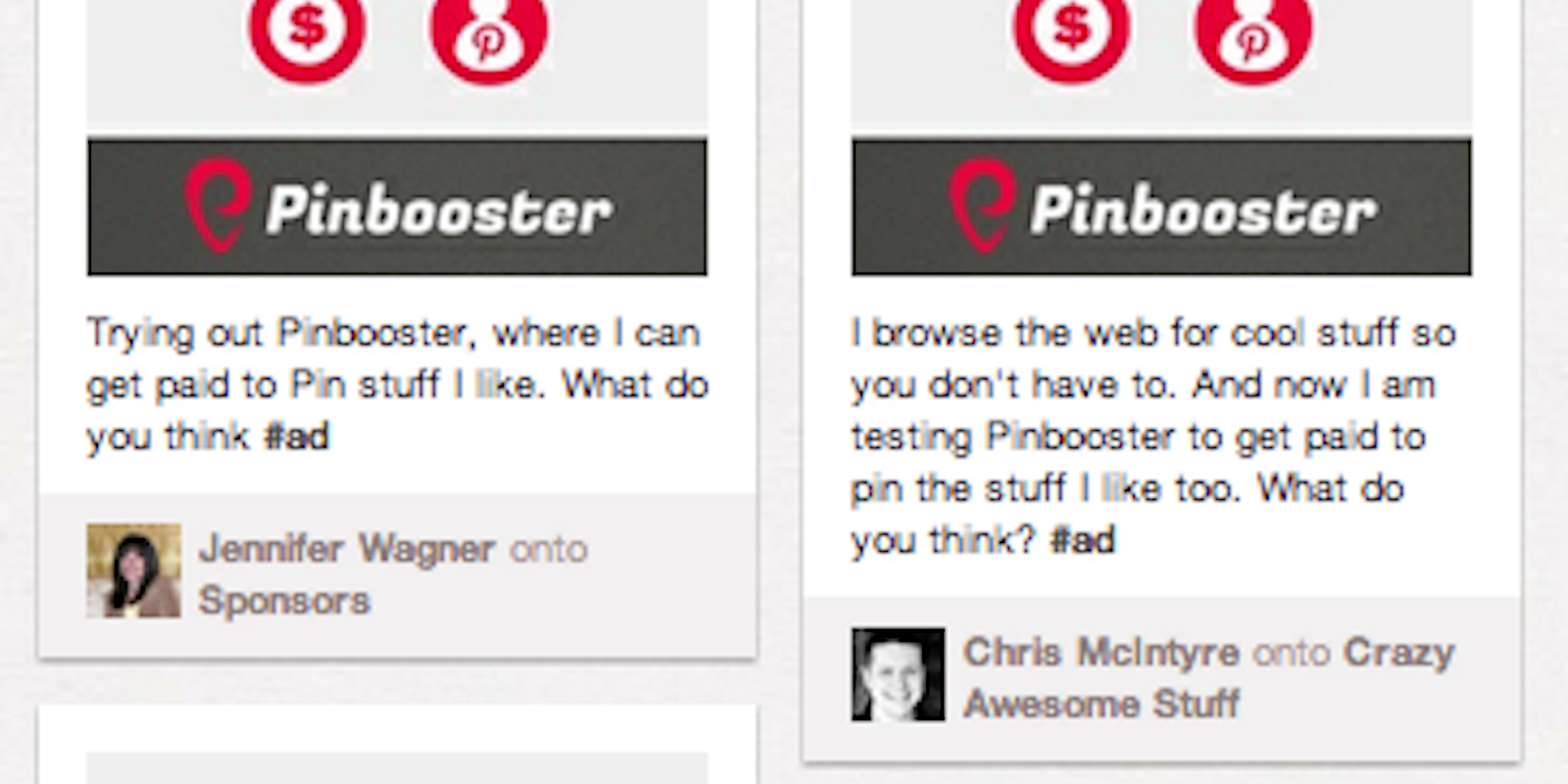Pinbooster wants to be the first service to let Pinterest users to monetize their pins.
But given that Pinterest has already started marking and blocking links to the Pinbooster site as spam, it’s doubtful they’ll be allowed to make it happen.
It’s no secret that scammers are able to make a living off of Pinterest by pinning links that direct to phishing scams or their Amazon affiliate accounts.
However, when it comes to making cash, law-abiding pinners are out of luck. Pinterest’s recently revised Acceptable Use Policy forbids “commercial use” of Pinterest—ironic considering Pinterest is better at driving sales than Facebook.
Pinbooster cofounder Dave Weinberg told Betabeat that his service would be similar to SponsoredTweets in that it would allow advertisers to pay power pinners to pin their items. Just like advertisers can pay Heidi Montag $3,250 to tweet about them, brands could potentially ask a top 10 pinner to pin their product for a price.
“There is no way for advertisers, brands, organizations to reach out to users that might be incredibly influential on Pinterest,” he told them. “Pinbooster does just that. It connects brands to users and asks users to pin stuff on their behalf.”
That’s not entirely accurate. Pinterest’s policy hasn’t stopped advertisers from contacting power users in more traditional ways. Fashion label Calypso St. Barth commissioned influential pinner Christine Martinez to pin for their board. Likewise, Etsy secures a different power pinner every week to guest pin on behalf of the handmade community. It’s likely these relationshops are in the clear, since they’re formed organically and not through a third-party service.
Clearly, Weinberg should have done his homework. The image-sharing network shut down a similar commercial Pinterest service in April.
PinDollars was designed to help users cash in on their pins by connecting pinned products to relevant affiliate links. Pinterest sent the comapny a cease-and-desist notice less than 24 hours after it launched.
Founder Chris Hedgecock told the Daily Dot he thought it was unfair that users, who were making Pinterest popular for free, wouldn’t be able to be compensated.
“[Shutting PinDollars down] is like Pinterest is saying to their users ‘We’re going to be rich off Pinterest but you don’t get to make any money,’” he said.
PinDollars may have especially struck a chord with Pinterest after the image-sharing network was criticized for using Skimlinks, a similar affiliat- linking strategy, to make a profit in February. The site’s clandestine approach made such an uproar, CEO Ben Silbermann was forced to make an apology. Since then, Pinterest has been more cautious. It’s made its money through fundraising, not pinning.
Pinterest began blocking links to PinDollars mere hours before sending a cease-and-desist notice. Given the number of blocked links to Pinbooster, we can guess it’ll be served any minute.
Photo via Pinterest
